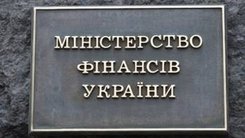
A meeting of the local initiative group made up of regional council members and activists to support implementation of the Extractive Industries Transparency Initiative (EITI) in Ukraine in the region was held on 22 December in Chernihiv.
Presented at the meeting was a map of companies, which are holders of special permits to operate oil and gas fields in the Chernihiv oblast. Also, the participants were introduced to the main principles declared at a roundtable on the issues of extractive industry transparency, which was held in Vanva on 30 November.
The initiative group discussed the possible ways and tools for stepping up the drive towards transparency in the region. The level of transparency in company operations could be increased through sending out official inquiries to verify the availability of licenses held by such companies, studying the operational results of the companies in EITI Reports, and monitoring the submission of such reports on the ground.
For effective EITI implementation, it is also recommended to work together with members of local councils to obtain transparent data on extractive operations in the oblast. Among other things, it is also possible to control the industry in localities by ensuring collaboration between local governments and extractive companies. To this end, it was suggested to set up initiative groups in the districts, where extractive companies are operating.
The group meeting has developed recommendations for promoting the Extractive Industries Transparency Initiative Standard in the Chernihiv region.
The event was conducted by the Chamber of Ukrainian Tax Consultants as part of implementation of a subgrant under the Municipal Finance Strengthening Initiative (MFSI-II) Roll-out Project with regard to providing assistance in implementation of the Extractive Industries Transparency Initiative (EITI) in Ukraine Component, with support from the United States Agency for International Development (USAID) and the Institute for Budgetary and Socio-Economic Research (IBSER).







 Glyanec
Glyanec